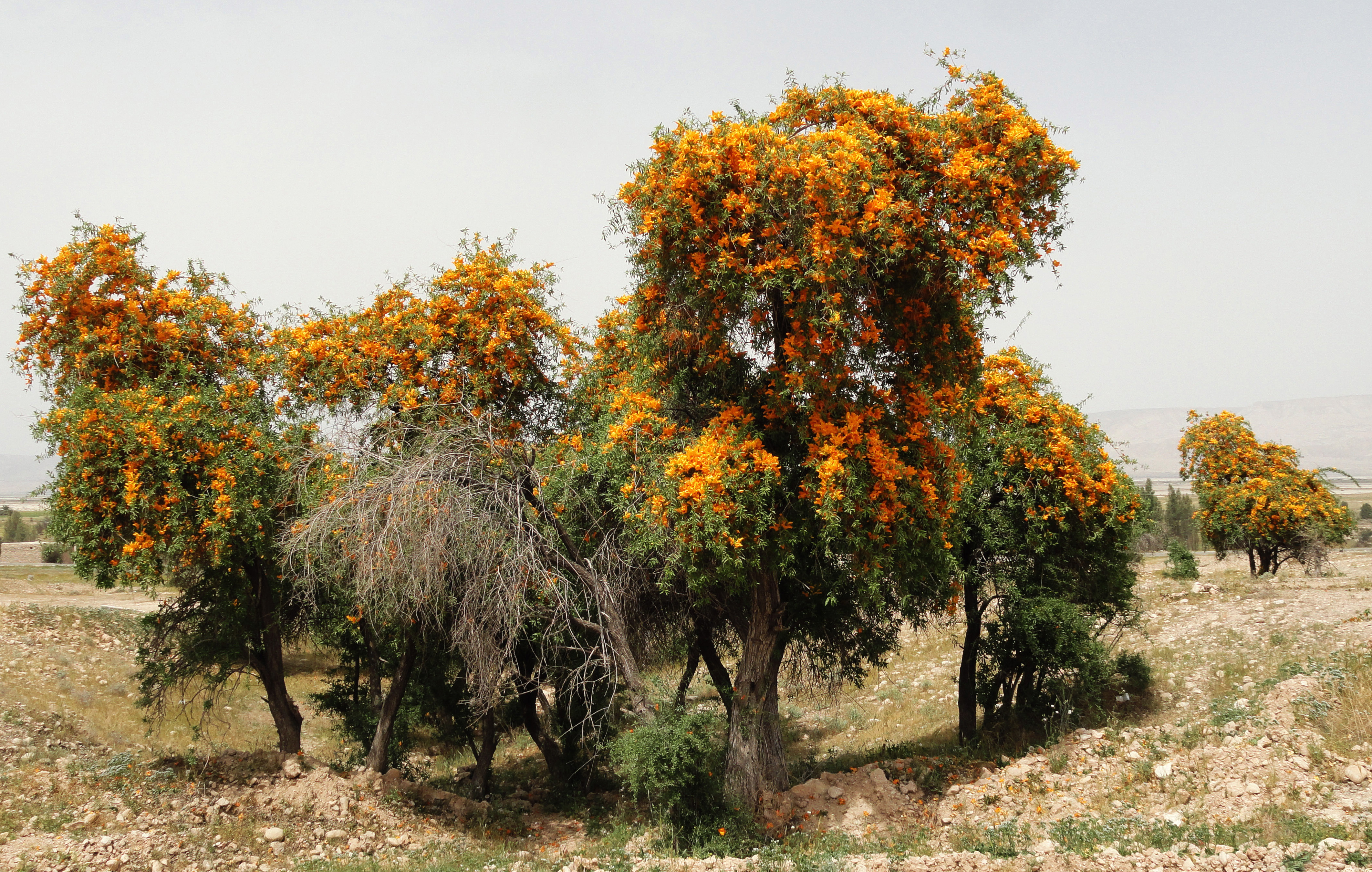Tecomella Undulata is one more tree species, locally known as rohida, which is found in the Thar Desert regions of northwest and western India. It is an important medium-sized tree of great use in agroforestry, that produces quality timber and is the main source of timber amongst the indigenous tree species of desert regions.
It occurs on flat and undulating areas including gentle hill slopes and sometimes also in ravines. It is well adapted to drained loamy to sandy loam soil having pH 6.5-8.0. The species thrives very well on stabilized sand dunes, which experience extreme low and high temperatures.

It grows in areas of scanty rainfall (annual 150-500mm) and high temperature (35 °C to 48 °C). It can withstand extremely low temperature (0 °C to −2 °C) during winter and high temperature (48 °C to 50 °C) in summers. The tree is a strong light demander. It is drought, frost, fire, and wind hardy. At the time of flowering (December–February), it produces beautiful showy flowers in yellow, orange, and red colours.
Tecomella undulata plays an important role in ecology. It acts as a soil-binding tree by spreading a network of lateral roots on the top surface of the soil. It acts as a windbreak and helps in stabilizing shifting sand dunes. It is considered the home of birds and provides shelter for other desert wildlife. The shade of tree crown is a shelter for the cattle, goats, and sheep during summer days.
Tecomella undulata has got medicinal properties as well. The bark obtained from the stem is used as a remedy for syphilis. It is also used in curing urinary disorders, enlargement of the spleen, gonorrhea, leucoderma, and liver diseases. Seeds are used against abscesses. Traditionally in Musakhel, Pakistan its flower used for Hepatitis.
The tree has become endangered as time has gone by due to negligence at the hands of the government and locals who have been living in torrid conditions due to severe bouts of drought in the region.















































